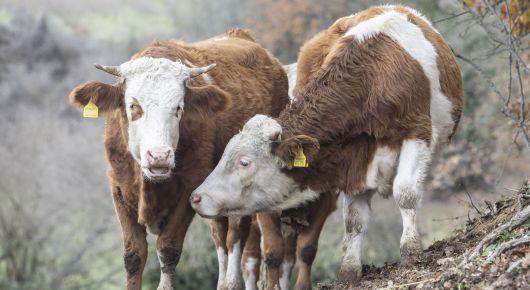Over 400 Russian-speaking vets participate in virtual lumpy skin disease preparedness training

FAO offered an online course on lumpy skin disease with more than 400 veterinarians participating. The four-week training in the Russian language started on 7 April through the Virtual Learning Centre (VLC).
FAO is supporting the fight against this cattle disease globally and specifically in Europe and Central Asia by training as many veterinarians as possible. This training was designed to build capacity in detection, prevention, and control of lumpy skin disease.
The target audience is primarily government veterinarians working in countries that are at risk of disease emergence or currently experiencing outbreaks. In this training round, animal health specialists joined from Armenia, Azerbaijan, Belarus, Estonia, Georgia, Kazakhstan, Kyrgyzstan, Latvia, Lithuania, the Republic of Moldova, the Russian Federation, Tajikistan, Turkmenistan, Ukraine, and Uzbekistan.
Lumpy skin disease was for a long time restricted to sub-Saharan Africa. However, over the past decades the disease has slowly invaded new territories, sweeping first into the Middle East and Turkey and then, since 2015, into most of the Balkan countries, the Caucasus, and the Russian Federation, where the disease continues to spread despite implemented prevention and control efforts. The disease is having dramatic effects on rural livelihoods that are strongly dependent on cattle, causing significant income losses for affected farmers.
Previously, FAO developed standardized training materials (including presentations and guidelines), which can be easily translated and adapted to countries’ specifics and rolled out quickly to reach most national veterinarians through the training-of-trainer (or cascade) approach. This was already implemented in North Macedonia (2017) as well as Belarus, the Republic of Moldova, and Ukraine (2018).
About the course
The 10-hour tutored course has six training modules that cover a range of topics, including clinical signs, sampling, laboratory diagnosis, outbreak investigation, and disease control measures. This course was originally developed jointly by FAO and the European Commission for the Control of Foot and Mouth Disease (EuFMD) following a series of successful courses run in 2020–21. Considering the global demand, FAO has again offered an online Russian-language course to official and private veterinarians in Eastern European and Central Asian countries.
The course was open for a duration of four weeks with each week covering a specific topic using a discussion forum. Trainers posted questions to challenge participants and deepen their understanding of course materials. The course ended with a final course assessment and a closing webinar covering topics that were either difficult for participants or had sparked the most discussion in the forum.
5 May 2022, Budapest, Hungary
